‘Protect synagogues, act on anti-Semitism’, leaders told
After Friday’s possible terrorist attack on a synagogue, the three largest states are poised to introduce new laws protecting places of worship from intimidatory protests.
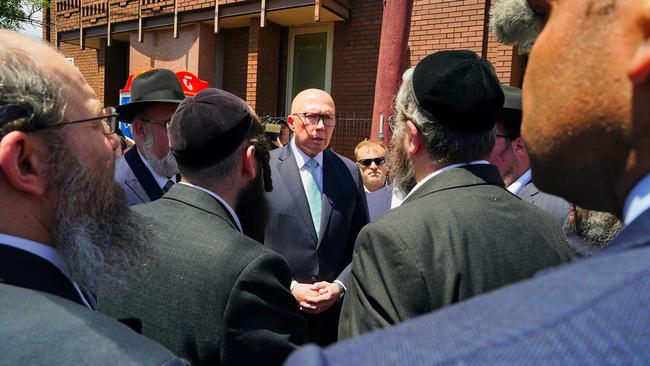
Australia’s three largest states are poised to introduce laws protecting places of worship from intimidatory protests as both levels of government scrambled to react to Friday’s possible terrorist attack on a Melbourne synagogue.
It comes as the Australian Federal Police launched an investigation into rampant anti-Semitism and confirmed it was investigating the fire at the Adass Israel Synagogue in Ripponlea, Melbourne, as a terrorist attack.
It was followed by the alleged chanting of anti-Semitic slogans in Chullora, southwest Sydney, on Sunday by protesters celebrating the fall of Syrian dictator Bashar al-Assad, which NSW police are now investigating.
Protesters could allegedly be heard chanting “Khaybar Khaybar ya yahud”, an Arabic rallying slogan referencing a battle in which a Muslim army attacked a Saudi Arabian town that was home to a Jewish community during the Islamic conquests in 628.
It translates to: “Khaybar, Khaybar, oh Jews. The army of Muhammad will return”.
The Jewish community has welcomed possible law reform to protect places of worship but has demanded more action against anti-Semitism.
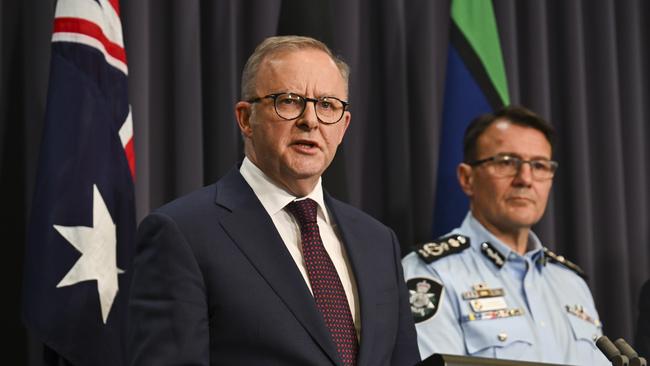
NSW Jewish Board of Deputies president David Ossip urged police to throw the book at any Chullora protester found to have chanted the slogan. “It is outrageous and intolerable that individuals can freely chant on the streets of Sydney for the massacre of Jews,” he said.
“No one should be mistaken into thinking that inaction will maintain social cohesion. We’ve clearly seen how quickly hate directed against Jews morphs into acts of violence against Jews and unravels communal harmony.”
The chant is unlikely to breach state criminal protections outlawing hate speech, given it would not appear to be a direct incitement to violence. NSW Premier Chris Minns has previously signalled he could strengthen those protections, saying his government had demonstrated it was “prepared to act on legislative reform” to protect harmony.
Police have laid charges against people displaying terrorist symbols but have been unable to broadly prosecute hate speech, which often falls short of criminal provisions.
On protecting places of worship, Mr Minns was first out of the blocks, on Saturday instructing his Attorney-General to explore reform options. “By and large, (NSW) has been hugely successful (in social harmony),” Mr Minns said on Monday.
“But from time to time, legislative changes (are needed) to make it clear that it’s not OK to intimidate or vilify someone on the basis of race or religion.”
Victorian Premier Jacinta Allan is also considering changes while Queensland Attorney-General Deb Frecklington said the Crisafulli government was looking at what NSW was doing “with great interest”.
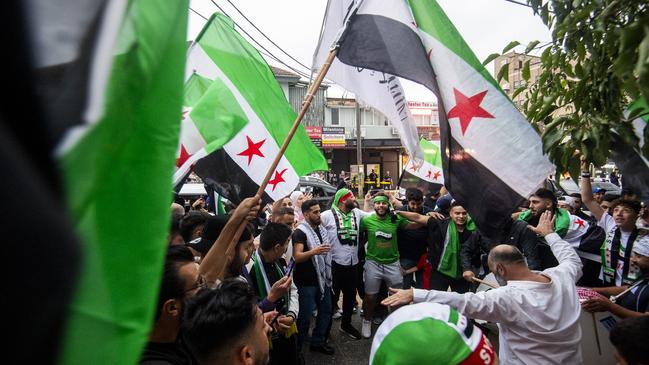
“Bullying, intimidation at places of worship is not on … if people decide to do that, we’ll throw the full force of the law at it,” she said. “And if the laws are not in place, they will be.”
It follows a protest last week outside Sydney’s The Great Synagogue, where pro-Palestine activists demonstrated against an event being held by Israel’s university of technology.
No arrests were made but two men carrying Israel flags were issued with move-on directions.
The synagogue was put into lockdown as a precaution on police advice, and attendees said they were advised to shroud clothing and items that could identify them as being Jewish.
Legal minds are conflicted on the appropriateness or effectiveness of any protest ban around places of worship.
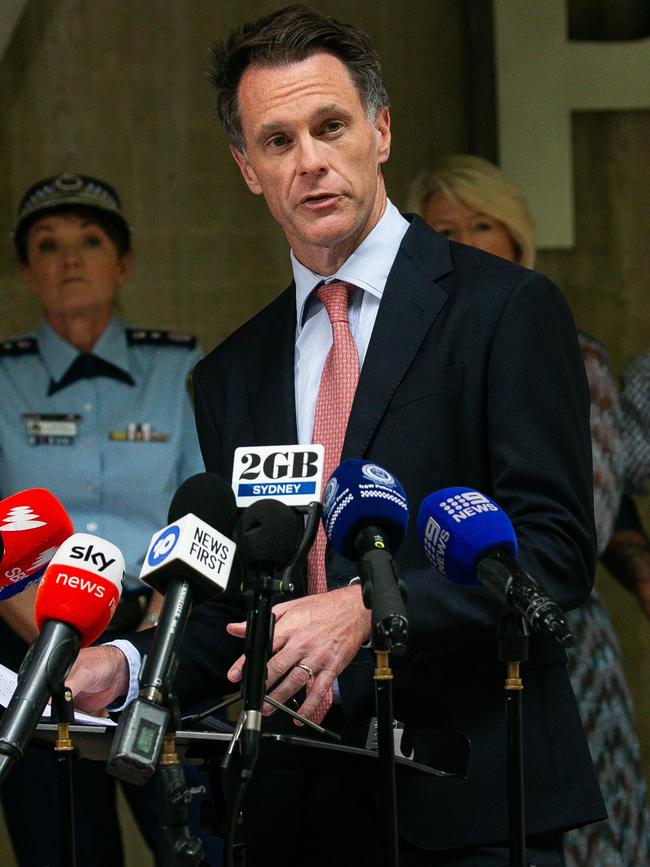
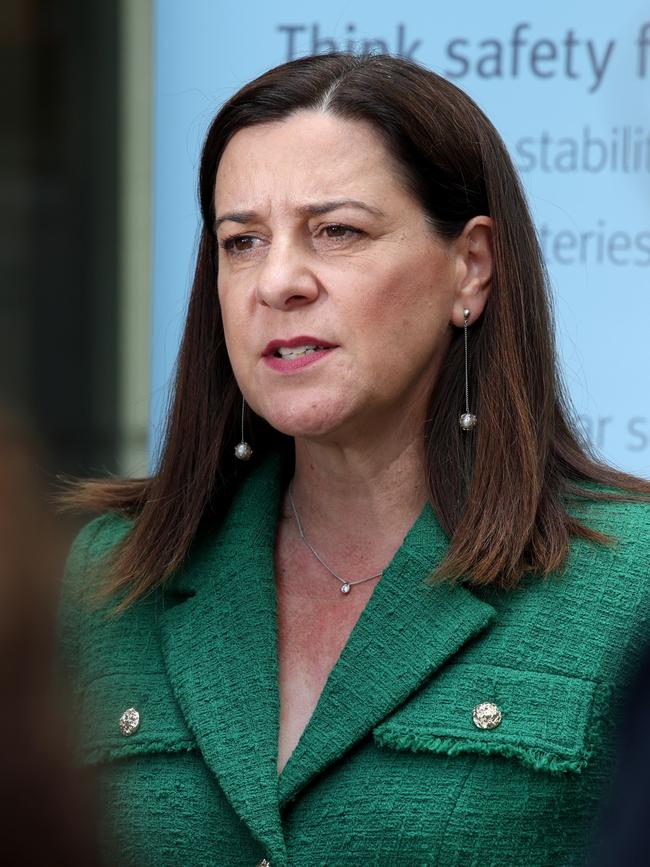
Australian Lawyers Alliance spokesman and barrister Greg Barns said protest activity was captured by existing laws outlawing violence, vilification and hate speech.
“The laws do cater for people who, for example, indulge in vilification, racial vilification, hate speech or violent acts,” he said.
“If you have a protest out the front of a building, that does not give you the right to throw a brick at the window or stop people entering or leaving the building.”
Last month, the NSW government tried to impose an exclusion zone around the Port of Newcastle to prevent disruption from climate protesters but it was struck down in the courts.
Mr Barns said placing an exclusion zone around places of worship would be “potentially problematic”, pointing to protests at Catholic churches in support of victims of child abuse. “To criminalise that … would seem to be certainly undemocratic,” he said.
Barrister Felicity Graham, who argued against the exclusion zone at the Port of Newcastle in the NSW Supreme Court, said a ban on protests outside places of worship would be “unprecedented” and “extreme”.
“In my view (it would be) very likely struck down by the High Court as unjustifiably infringing the freedom of political communication,” she said. “This is one of those ideas that superficially might sound attractive but when you think it through, you realise how extreme and ridiculous it is.”






To join the conversation, please log in. Don't have an account? Register
Join the conversation, you are commenting as Logout